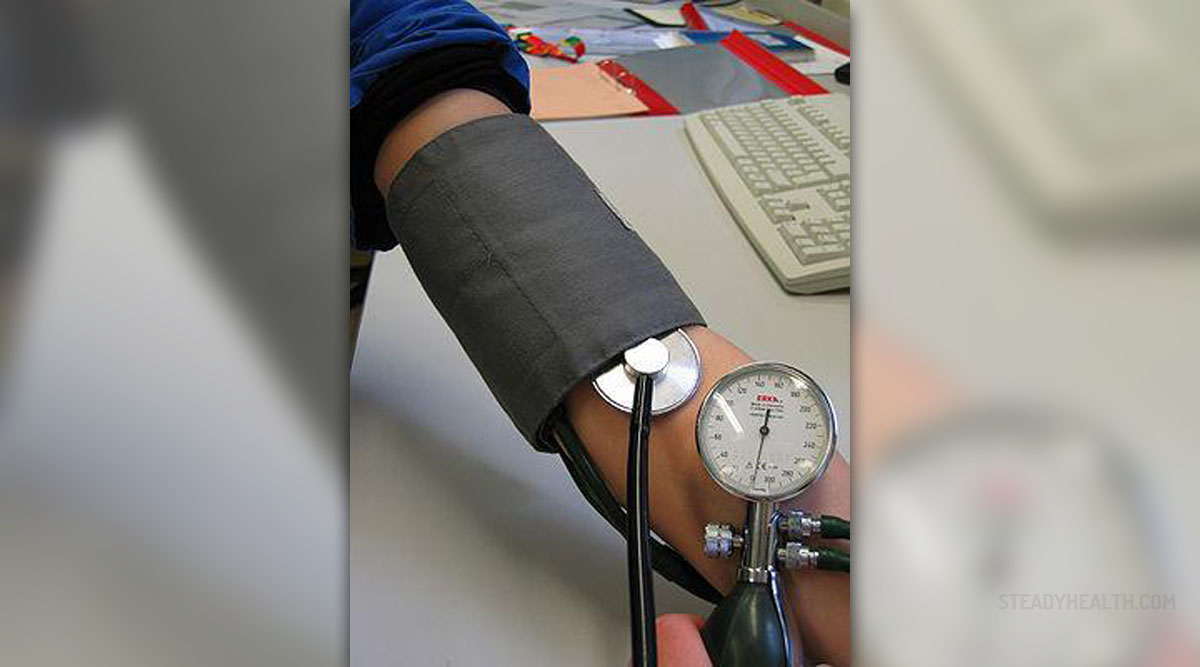
Having elevated blood pressure for a long period of time usually means that you have chronic hypertension. For adults, all values over 139/89 mmHg measured at two occasions in your doctors’ office, if you are not sick or on any medication, are considered high blood pressure.
Hypertension – Types and Symptoms
There are basically two types of chronic hypertension, known as essential and secondary hypertension. Essential hypertension has an unidentified cause and most people suffering from this condition are 20 years of age and older and have no symptom whatsoever. Obesity, inactive lifestyle, lots of salt in your diet and stress are known as factors that may contribute to development of this medical problem.
Secondary hypertension is caused by some other medical problem and these patients usually have mild to moderate signs and symptoms. Problems with narrowing of blood vessels of the heart, thyroid or adrenal gland disorders, kidney related diseases and the use of medications such as Aspirin, cough and cold drugs, steroids or contraceptive pills may cause secondary hypertension. Exposure to lead or mercury, certain herbal remedies, eating licorice and too much salt may all lead to high blood pressure as well. Additionally, use of alcohol, nicotine, cocaine and amphetamines may be responsible for secondary hypertension.
Speaking of high blood pressure symptoms, people suffering from this condition may notice headaches (ranging from mild to severe), unexplained weakness of the body, breathing and vision problems, chest pain and dizziness or fainting.
Contributing Risk Factors
Scientists and doctors have been able to identify certain risk factors which can contribute to development of chronic hypertension. This includes patients already diagnosed with high blood pressure and those with a family history of cardiovascular disease in early ages. Men older than 55 and women after 65 years of age are exposed to greater risk to develop chronic hypertension. Patients suffering from diabetes, high cholesterol in the blood or proteins in the urine are also at risk to have this condition. Lack of physical activity, high body mass index (BMI), smoking and frequent abuse of alcohol will also place anyone into high risk group for development of chronic hypertension.
Diet with too much salt is discovered to be another risk factor for chronic high blood pressure. Native Americans, Latinos and people of Hispanic and African-American origin are also found to be more prone to chronic hypertension than some other groups of people.
Prevention and Treatment
Avoid drinking alcohol, limit amount of salt you use in the diet and exercise regularly to avoid development of chronic hypertension. Strive to decrease stress in your life and stop smoking in order to be healthier and prevent high blood pressure, among other medical problems.
Taking prescribed medications is also extremely important for every person suffering from chronic hypertension and for those who want to prevent this condition. There are different drugs that may be prescribed to treat high blood pressure and your doctor will decide which medication or a combination of medications will work for you.
- www.cdc.gov/bloodpressure/pregnancy.htm
- www.cdc.gov/bloodpressure/index.htm
- Photo courtesy of PhilippN by Wikimedia Commons: commons.wikimedia.org/wiki/File:Blood_pressure_measurement.JPG

















Your thoughts on this
Loading...